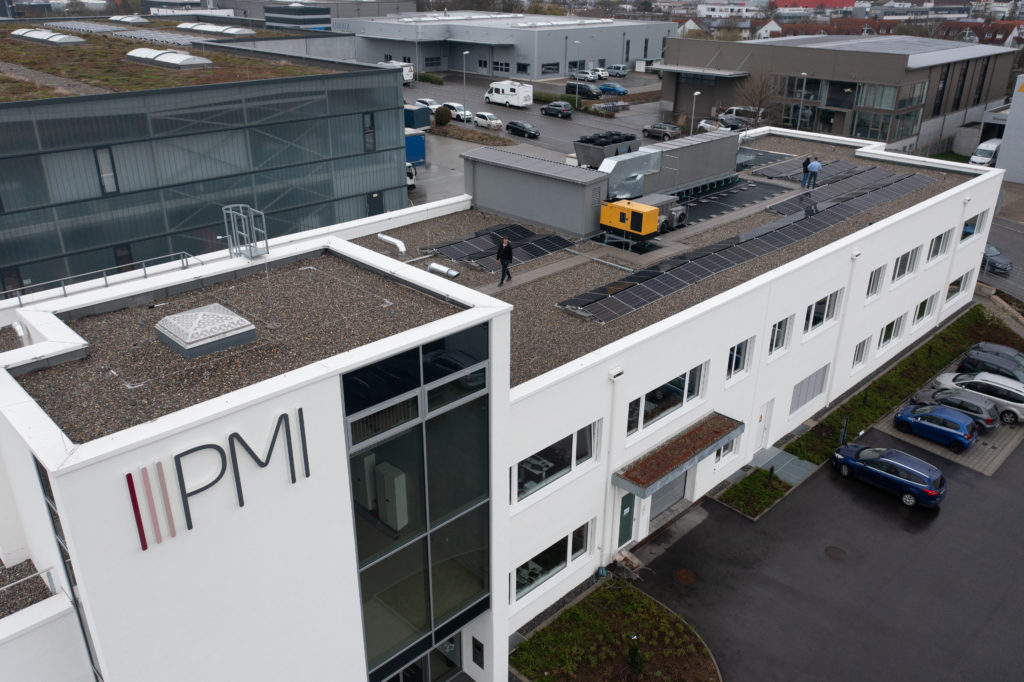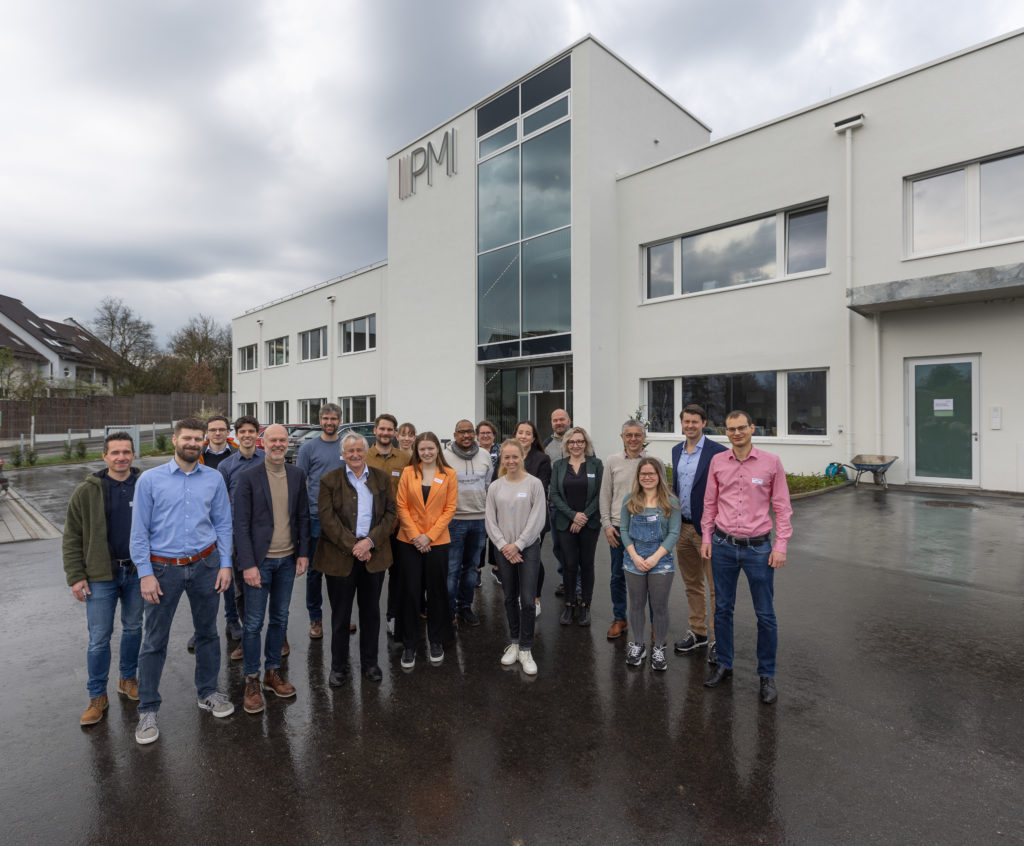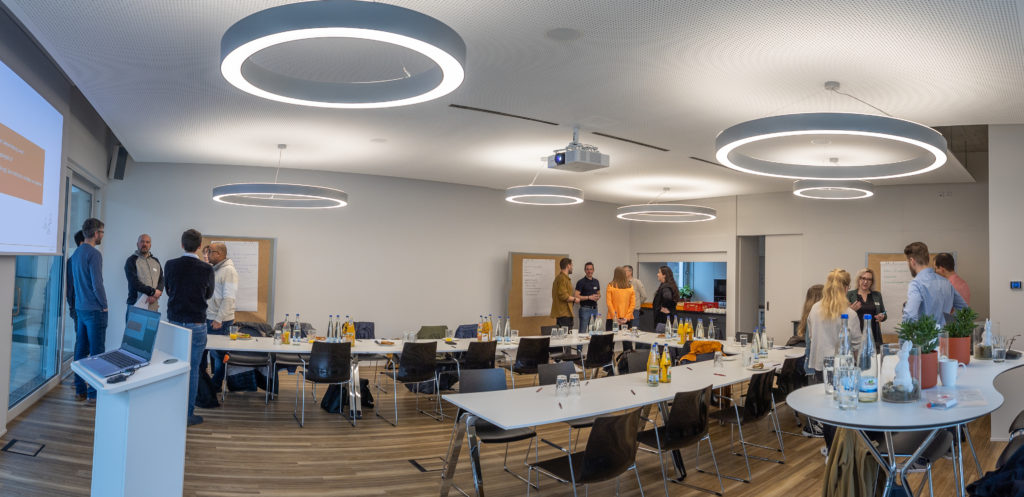Polymedics Innovations (PMI) aims to achieve CO2-neutral production by 2030. In order to identify the measures necessary for this goal, PMI participates in the KLIMAfit Esslingen initiative. The aim of this funding programme of the Baden-Württemberg Ministry of the Environment is to introduce commercial enterprises to corporate climate protection and to support them in reducing their CO2 emissions. Work is carried out in regional convoys. One of them is KLIMAfit Esslingen, in which PMI is participating together with five other companies. Last week, all project members came to PMI for one of the regular workshops. Dr. Pascal Bader, Lord Mayor of the City of Kirchheim, addressed the guests before they dealt with the topic of the day – mobility and CO2 reduction.
Municipal responsibility on the way to climate neutrality
Germany is to become climate-neutral by 2045, according to the German government’s goal. Every city has to make its contribution, Kirchheim’s Mayor Dr. Pascal Bader clarified and explained the status of municipal heat planning in Kirchheim: “Our goal is to reduce heat consumption by 34 percent by 2040.” In the first step, the urban area was divided into more than 150 clusters with similar conditions. In the second step, the city analysed the savings potential: What can Kirchheim achieve with energy-efficient renovation and increased energy efficiency? How does the preservation of an old town go hand in hand with energy-efficient renovation? According to Mayor Bader, the latter poses great challenges for a historic town like Kirchheim.
Community Theme Mobility
The topic of mobility also affects municipalities and companies alike: The transport sector is responsible for the second largest emission of CO2 and is vital for the survival of companies in various ways. The Scholderbeck bakery, a project partner at KLIMAfit Esslingen, has to transport its organic baked goods to the stores and thus to the customer every day. PMI supplies its synthetic skin replacements to clinics around the world so that physicians can treat burn victims and wound patients. The Filharmonie in Filderstadt is also dependent on mobility: it needs people who are mobile to fill concert halls.
CO2-neutral bis 2030
“The heterogeneous project group of KLIMAfit shows each participant ‘best practice’ examples that we would not otherwise have available,” says PMI CEO Christian Planck, underlining one advantage of the KLIMAfit initiative. The aim of each participating company is to develop an action plan at the end of the project in order to reduce its own CO2 balance. Christian Planck: “This is a prerequisite for ‘passing’ the audit in the summer and receiving the certificate. This, in turn, is a building block on our way to achieving climate-neutral production by 2030.”
Travel in a more climate-friendly way
Air travel is an aspect of PMI that needs to be looked at more closely: “We have an independent sales company in the USA and numerous employees,” explains Christian Planck. “We also sell our products in around 40 countries around the globe. Air travel is part of everyday working life.”
On Thursday last week, KLIMAfit showed its participants that it is also possible to act in a climate-friendly way: For example, as many appointments as possible should be combined in order to reduce the number of air trips. Longer stays make more sense than several individual arrivals. Even seat spacing has an impact on the traveler’s carbon footprint. In other words, economy class trumps business class.
Energy efficiency as an integral part of PMI’s building design
At the previous two KLIMAfit workshops, the participants dealt with greenhouse gas accounting as well as the topic of electricity and heat. In the latter area, PMI has a lot to show for it. Christian Planck: “In our company building, which was inaugurated in 2023, we have implemented measures for sustainable energy generation and energy efficiency.” For example, the PMI building in Kirchheim’s Hegelesberg has a photovoltaic system and is heated by geothermal energy. “The energy consumption required for our entire building is 45 percent lower than that of a conventional building,” explains Christian Planck. The higher thermal insulation, optimised windows and temperature-controlled shading contribute to this. The cleanroom was also planned and implemented according to the latest energy findings – even the waste heat from the production facilities is recovered and reused.








